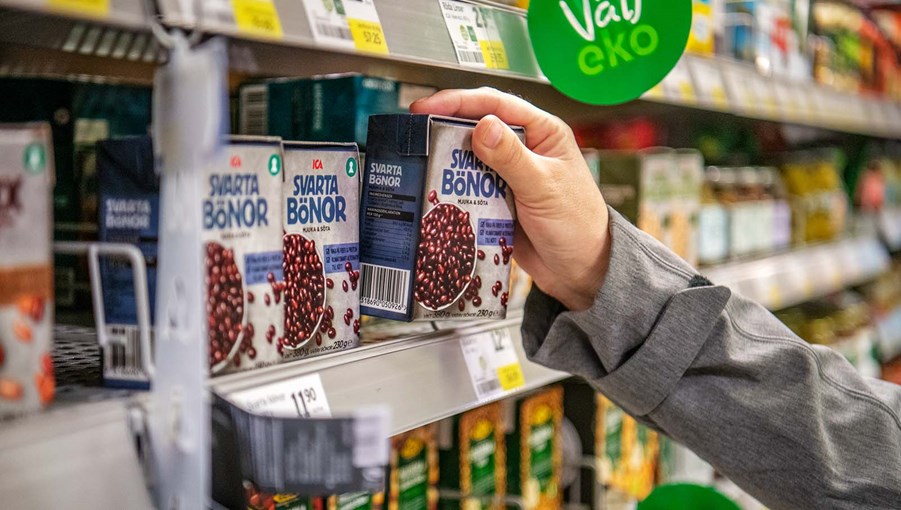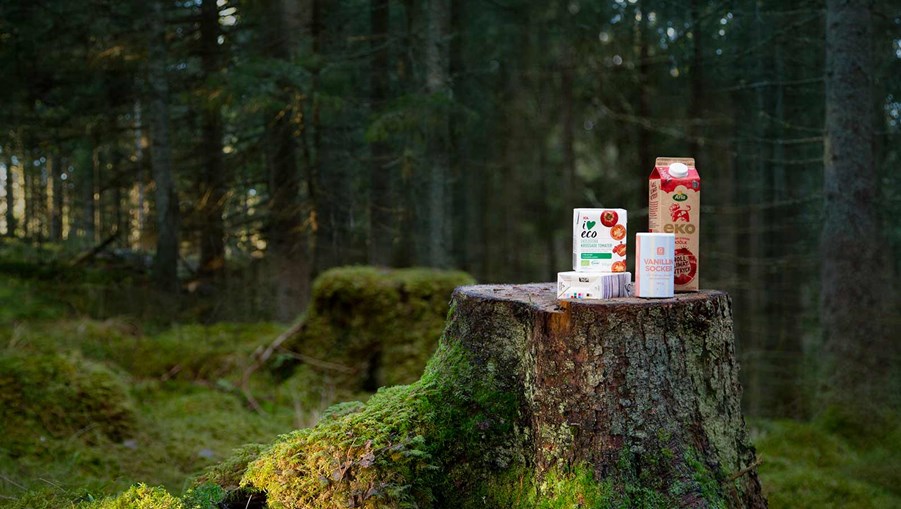
Picture from the seminar 3 February. From left you find Jessica Polfjärd, MEP for the EPP group, Tytti Peltonen, Vice President for Corporate Affairs at the Metsä Group, Joaquim Nunes de Almeida, Director at DG GROW and Anna Holmberg, Director and Head of the Brussels office of the Swedish Forest Industries, who moderated the webinar.
The upcoming Sustainable Products Initiative will be a “horizontal framework” that defines broad rules in a Directive followed by delegated acts to address product specificities. “Renewability” will not be included as a principle of sustainability in the SPI. This worries the forest-based industry. "It might be included later, when it’s time for delegated acts," says Joaqium Nunes de Almeida at the European Commission.
A slew of policy initiatives impacting products from the forest-based industry is underway within the European Green Deal. One of the initiatives, the Sustainable Products Initiative (SPI) is expected in March.
In the Circular Economy Action Plan from 2020, principles for circular and sustainable products are listed, such as recyclability, reusability, durability, repairability and upgradability. But “renewability” isn’t included, which is a concern for the forest-based industry.
Wood and fibres are renewable materials that can be used for anything from packaging to construction and clothes.
At a webinar arranged by the Wood Be Better network, with participants from the European Commission, the European Parliament and the industry, it turned out that the question of inserting “renewability” as a principle for sustainability is still open.
– It might be included later, if it is seen as appropriate visavi the products we are regulating when it is time for delegated acts, said Joaquim Nunes de Almeida, Director at DG GROW, the Commission’s Directorate-General for internal market, industry, entrepreneurship and SME’s.
What is the SPI Directive?
The SPI will be a Directive, which contains a “horizontal framework” and which enables the Commission to do later legislation on specific products via delegated acts, Nunes de Almeida revealed. Such acts are prepared by the Commission with limited possibility for the European Parliament and the Council to influence.
– We think it is much better to have delegated acts for specific products that mean something concrete for that sector, rather than try to approach sustainability in such a horizontal way that you get just general principles, Nunes de Almeida said.
More than 82 percent of all fibre-based packaging in the EU27 are recycled today, the highest rate of any packaging material.
Jeopardizing a functioning recycling system
As part of the SPI, a mandatory recycled content could be imposed, as a mean to improve product sustainability. For fibre-based packaging, this could actually jeopardize an already well functioning recycling system.
In northern Europe with its large forest resources, fibre-based packaging is mostly produced from fresh fibres. In other parts of Europe with high population density, recycled fibres are instead the dominating raw material. Fresh and recycled fibres are part of the same large industrial system and they are complementary
A mandatory recycled content imposed in the same way for all products would for fibre-based packaging mean that fibres would have to transported around Europe, instead of being used where recycled. This would result in increased costs and emissions and reduced sustainability.
– Wood fiber is a renewable raw material in itself. You need fresh fiber in the recycling loop to maintain the quality and to keep the loop going, said Tytti Peltonen, Vice President for Corporate Affairs at the Metsä Group.
Does more recycled content always mean improved sustainability? It is not a given, according to Anna Holmberg, Director and Head of the Brussels office of the Swedish Forest Industries, who moderated the webinar:
– A mandatory recycled content may be a good policy tool for materials lagging behind on recycling, but not for frontrunners, such as fiber-based packaging, as it would jeopardize an already well-working system.
Important with balance in the debate
A third issue of great importance is the debate on single-use versus reuse products and which of the two could be regarded as most sustainable. The correct answer is that it depends on a number of parameters for instance raw material sourcing, number of uses, transportation, cleaning and recycling rates. From a policy making perspective, this debate can therefore not be addressed in a “black or white” manner, instead a balance must be found.
When asked how to find the right balance the Commission's representative replied:
– We agree that flexibility is needed. It's difficult to find the optimal balance, Nunes de Almeida said.
– But we must bear in mind that we should only use the packaging we really need.
Jessica Polfjärd, MEP for the EPP group, stated that there is a lot of disagreement on this matter. What is best for the environment, she said, is not always what you expect before you dig deeper.
– You have to distinguish between different usages. For example you must consider the risk of food waste.
Watch the broadcast from Wood Be Better here.



